detail profile jan kiepura

Jan Kiepura
Ян Кепура
atau dikenal sebagai
Riwayat Hidup
From Wikipedia
Jan Wiktor Kiepura (May 16, 1902 – August 15, 1966) was an acclaimed Polish singer (tenor) and actor.
In 1926, Jan Kiepura left Poland for an international career in Germany, Hungary, France, and England.
When he returned to Poland, with the money he had earned from his performances, he built the well-known hotel Patria in the Polish border town of Krynica-Zdrój, which cost him about US$3 million.
Some Polish movies were made there.
Kiepura played in twelve Polish musicals, including O czym się nie myśli (1926), Die Singende Stadt (Neapol, śpiewające miasto) (1930), Tout Pour L'amour (Zdobyć cię muszę) (1933), and Mon coeur t'appelle (1934).
He signed contracts with Convert Garden in London, Opéra Comique in Paris and National Opera in Berlin.
Kiepura also started a film career, working with Berlin's UFA and then with the Motion Picture Industry in Hollywood.
He played in many films, of which the most famous are: The Singing City, The Song of Night, Ich liebe alle Frauen, The Charm of La Boheme, Das Land des Lächelns.
Info Pribadi
Peran Yang Di Mainkan Jan Kiepura
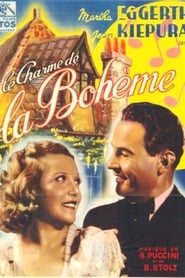 Ren and his two artist friends...
Ren and his two artist friends...The Charm of La Bohème 1937
René and his two artist friends lead a meager but careless life in a Parisian small apartment, their main worry being to avoid the housekeeper. Whenever they get some money they call more friends in and celebrate. This is how he meets beautiful but fragile Denise, who wants to be a singer as himself, and they fall in love. Yet when she finds out her real condition she takes a drastic decision which will determine their fates. La Bohème arias, and more.
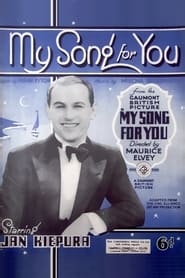 In this operaoriented musical Riccardo Gatti...
In this operaoriented musical Riccardo Gatti...My Song for You 1934
In this opera-oriented musical, Riccardo Gatti, an Italian young tenor in Venice, meets a young woman who sneaks into the opera house to try and get her fiancé hired as the orchestra's pianist.
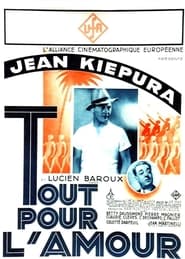 A famous tenor manages to charm...
A famous tenor manages to charm...All for Love 1933
A famous tenor manages to charm away a lovely young lady who was just about to be married to the opera director.
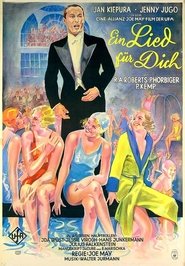 During a concert tour famous tenor...
During a concert tour famous tenor...A Song for You 1933
During a concert tour, famous tenor Riccardo Gatti meets Lixie at an Aida rehearsal and takes her for a ballet dancer. She is in fact trying to get a position for her boyfriend, so she accepts Gatti's date for supper. When she runs away he publishes a newspaper ad offering to give a concert anywhere she chooses if she shows up. She chooses a swimming pool hoping to discourage him, but he accepts.
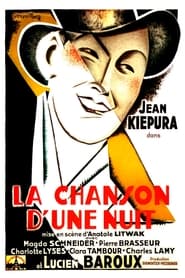 Opera singer Enrico Ferraro tired of...
Opera singer Enrico Ferraro tired of...Tell Me Tonight 1933
Opera singer Enrico Ferraro, tired of his too many engagements, jumps off the train escaping from his manager and changes to another going to the Riviera. He makes a friend and stops at a village, where (it seems) he can at last have some well deserved holidays, with the added interest of meeting a beautiful girl in the surroundings.
 He was known as Anatole Litvak...
He was known as Anatole Litvak...The Song of Night 1932
He was known as Anatole Litvak during his Hollywood directorial career, but he was still Anatole Litwak when he helmed the German musical Das Lied Einer Nacht (The Song of Night). Famed Polish tenor Jan Kiepura stars as famed Italian tenor Ferraro. Escaping from his tyrannical manager, Ferraro switches identities with a young tourist (Fritz Schulz) and goes off on an unscheduled Swiss holiday. Still travelling incognito, our hero falls in love with a winsome mountain girl (Magda Schneider). Alas, both his romance -- and his freedom -- are placed in jeopardy when it turns out that the charming young fellow with whom Ferraro traded identities was actually a notorious swindler. Anatole Litvak also directed the English-language version of Das Lied Einer Nacht, Be Mine Tonight
 A tourist guide in Naples is...
A tourist guide in Naples is...City of Song 1931
A tourist guide in Naples is taken on by an English woman impressed by his singing, and who regards him as her protege.
 A tourist guide in Naples is...
A tourist guide in Naples is...The Singing City 1930
A tourist guide in Naples is taken on by a Viennese woman impressed by his singing, and who regards him as her protege. This film was released as a German version and English Version known as "The City of Song". Brigitte Helm once portrays a beautiful femme fatale who displays her affection and lust for her tourist guide which is paralleled with the main bodied theme of the early romanticist songs played throughout.
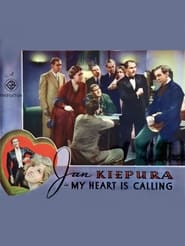 Musical comedy An opera singer falls...
Musical comedy An opera singer falls...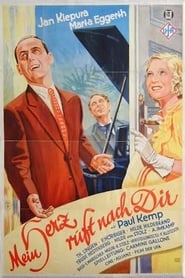 An opera company tries to get...
An opera company tries to get...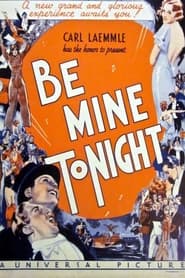 An Italian operatic tenor is dominated...
An Italian operatic tenor is dominated...